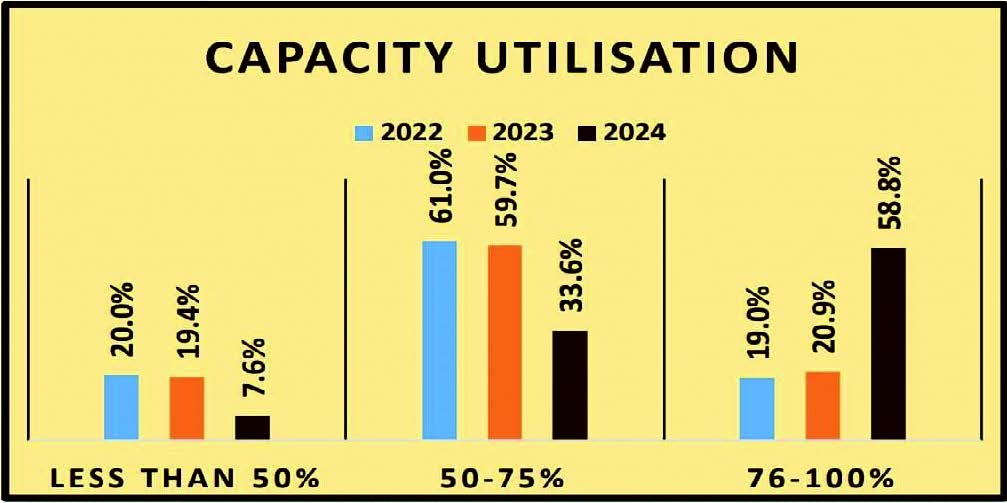Firms’ industrial output, jobs shrink
Businesses are failing to fully utilise their installed productive capacity due to challenges in the operating environment largely due to continued foreign exchange scarcity, Business Review has learnt.
Data contained in the Malawi Confederation of Chambers of Commerce and Industry (MCCCI) Business Climate Survey shows that as a result, firms’ capacity utilisation has dropped, with 20.9 percent of the businesses utilising between 76 and 100 percent of their productive capacity, compared to 19 percent in 2022.

In the prior year, only 38 percent of the firms were able to utilise between 76 and 100 percent of their capacity.
Capacity utilisation is a measure of the extent to which the productive capacity of a business is being used.
During the same review period, 15.9 percent of businesses laid off their employees.
In a written response on Tuesday, MCCCI president Lekani Katandula said firms are failing to fully utilise their installed productive capacities due to challenges in the operating environment.
“We have had forex, electricity, floods and droughts before which have massively challenged our economy before,” he said.
However, Katandula, who is also Illovo Sugar (Malawi) plc managing director, said prospects look good with improving foreign exchange availability and improved electricity supply.
“Our significant risk is food supply as rains have been rather erratic,” he said.
During the year under review, MCCCI data shows that 50.8 percent of the businesses increased their investment levels while 17.1 percent decreased their levels of investments.
On the other hand, 31.1 percent of the businesses increased the number of employees while 15.9 percent laid off employees.
Phillip Mala, a Blantyre-based father of two, is among the 15.9 percent that lost their jobs in the year under review.
Working as a stores supervisor in one of the production companies at Makata Industrial Area in Blantyre, Mala was let go due to a slowing business, which his employer said had affected their revenue streams.
“I have been struggling as the money I was paid was met with devaluation and subsequent rising cost of living,” said Mala, who was earning K70 000 a month.
Speaking separately, Employers Consultative Association of Malawi executive director George Khaki said because of the reduced productivity, companies are laying off workers to reduce operating costs.
He said: “Shortages of foreign exchange are a huge headache. Many businesses rely on imported raw materials for production of goods and services. Others rely on finished goods.
“The absence of these means that productivity is severely reduced affecting the ability to meet market demand and hence affecting profitability.”
In his State of the Nation Address delivered in Parliament in Lilongwe on Friday, President Lazarus Chakwera said some of the pain being felt by Malawians stems from over 20 years of public policies that have effectively destroyed Malawi’s production and manufacturing, leaving many of country’s youths without jobs and too few of the goods being exported.





